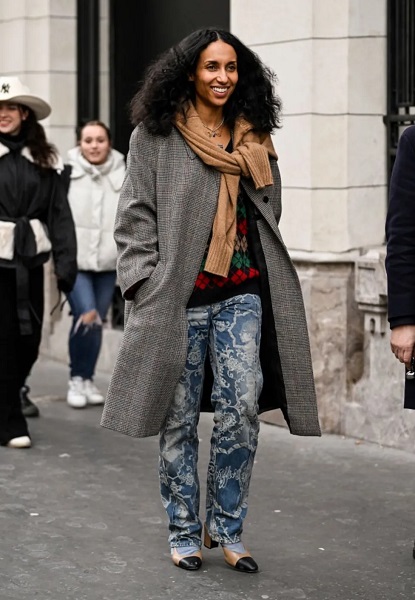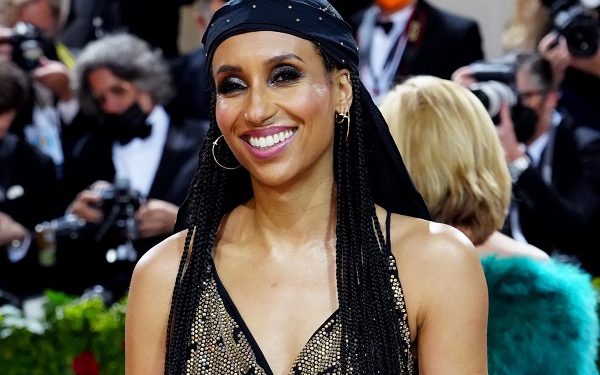The new head of British Vogue is London-born Chioma Nnadi replacing Edward Enninful, who spent more than six years breaking boundaries and championing diversity at the top fashion magazine.
Who is this first mixed-race woman to take on the role admits she “has big shoes to fill” and that there is still more to be done.
“Obviously what Edward did was incredible, I’m only taking the conversation further.”
Born to a Swiss-German mother and a Nigerian father, who came to the UK to study in the 1960s. Nnadi like many people of colour grew up not seeing many people who looked like her in senior roles.
“Thinking about younger baby Chioma, thinking about what she would’ve thought, and it’s not something in my wildest dreams that I would’ve imagined for myself,” she said.

“And I know how meaningful it is for younger people to see people like me, who look like me, in a position like this.”
She added that Vogue has become “much more diverse” since she started more than a decade ago.
Nnadi, 44, started her career in newspapers in the UK, before moving to New York and joining Vogue there. She spent the next 14 years climbing her way up the ranks, eventually reaching the position of editor of Vogue.com.
Nnadi has interviewed stars including Rihanna, Angelina Jolie, and describes herself “first and foremost as a storyteller”.
Enninful’s decision to step down last summer following rumours of a rift between him and Anna Wintour, Vogue’s editor in chief created a gap at the top of British Vogue, and Nnadi recently relocated back to the UK to take up the role.
Nnadi – whose official title is head of editorial content – admitted to feeling the pressure says “But it’s exciting. It’s an exciting time.”
“I have a great deal of admiration for what he (Enninful) did, he was someone I looked up to,” Nnadi said. “So, I know it’s big shoes to fill but I’m excited to take on that role.”
For her debut issue, Nnadi chose to feature the singer FKA twigs, a nod to her own early days as a music journalist.
“She’s someone whose music and style I’ve always loved.” “For me, she represents the modern British eccentric.”
British Vogue’s circulation is around 190,000, according to the latest Audit Bureau of Circulation figures. Despite the challenges facing the print industry, that figure has remained steady in recent years.
But it does still face challenges, including attracting Gen Z readers in an age of TikTok and Instagram.
Nnadi admits she sees social media as the magazine’s main competitor, rather than another fashion media brand. Fashion is one of the biggest polluters. That’s another challenge, Nnadi says. “I think there’s a big responsibility on the industry to wake up and see and do things in a more responsible way,” she said. “I’m definitely seeing progress in that regard.”
On the critic of Vogue for being out of touch, and for displaying fashion that’s unaffordable to most people – particularly given the high cost of living.
Nnadi admits there’s “a fantasy aspect to fashion,” but argues that’s what draws people in. “For me, when I open a magazine, that’s really what I want to see.”
Nnadi says she was “always” into fashion. One of her earliest childhood memories is fixating on a pair of pair of shiny patent leather shoes, when she was about five years old, and getting her father to buy them for her.
Growing up in central London, she learnt her sense of style from people-watching in the city.
“Back then when I was a teenager, I didn’t have the means to buy designer brands but it was about the fantasy and being able to recreate looks I saw, and I got very into the idea of styling my clothes in a specific way, and buying vintage,” she said.
“I had a sort of energy and enthusiasm about fashion and getting dressed that was really informed by walking around the streets of London.”
She still loves street wear, and vintage, and is known to be a fan of sambas. Getting dressed is, for her, “one of the most joyful things” she does all day.

